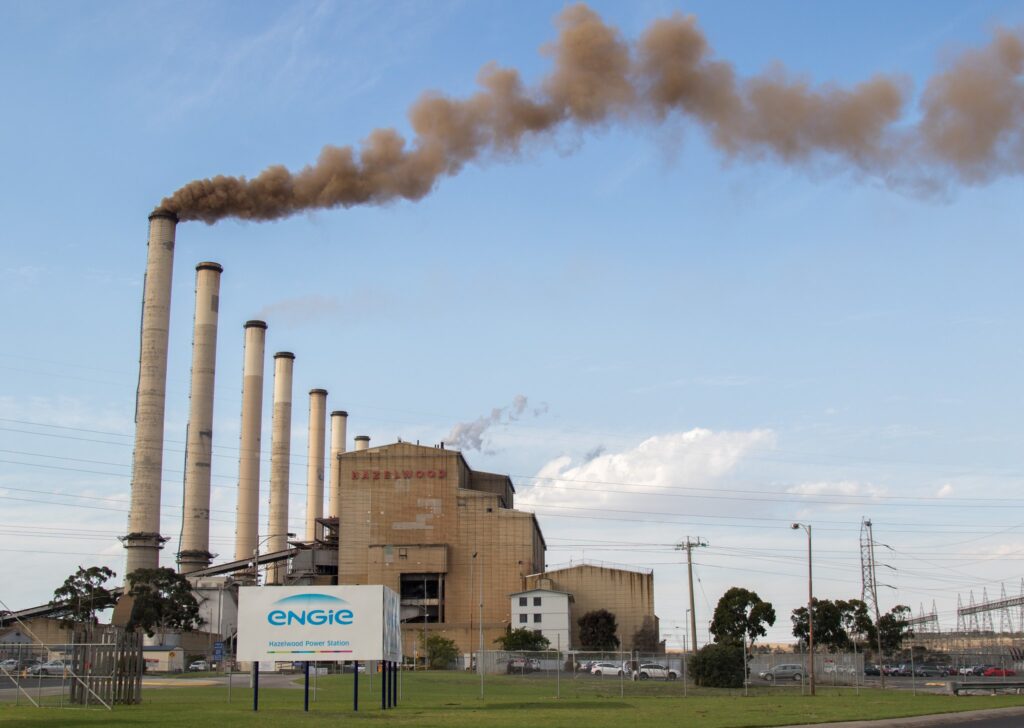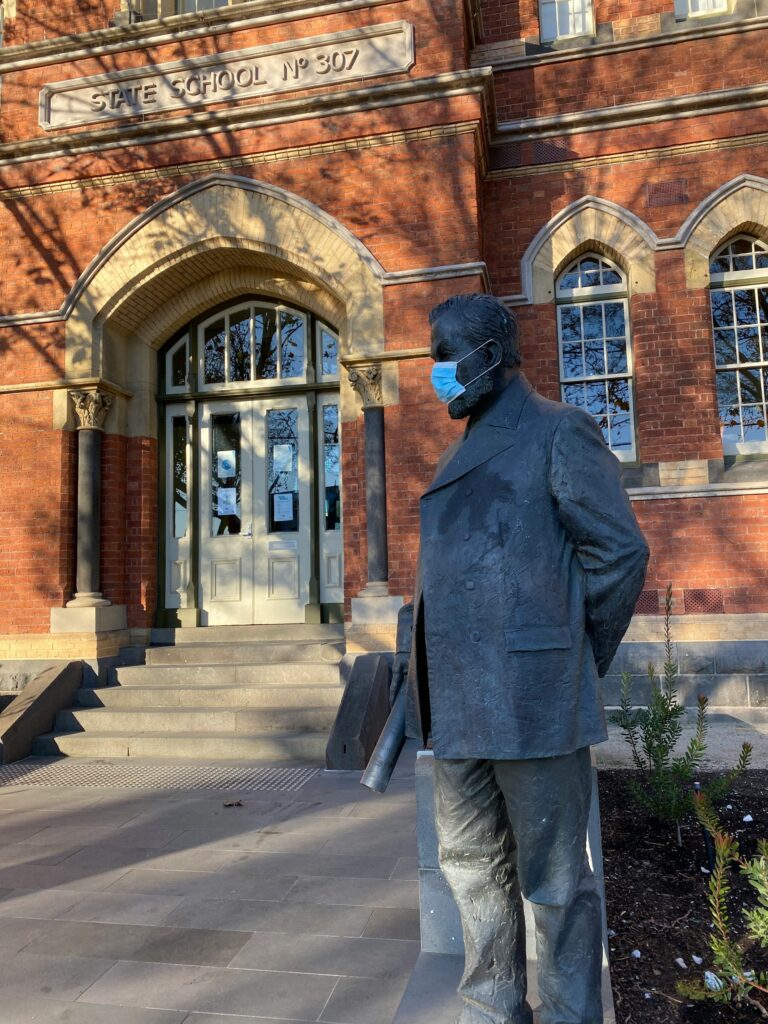Science Without Action
What creates the gap between evidence-based research and government policy?
By Felicia Bongiovanni
PhD Candidate, The Walter and Eliza Hall Institute (WEHI)
The devastation caused by climate change needs no introduction. It seems like each year we record the “hottest summer on record”, and there always seem to be unprecedented natural disasters unfolding somewhere around the world.
There is a virtually unanimous agreement among scientists that modern climate change is caused by humans. In fact, it was almost 100 years ago that a link was found between the increase in carbon dioxide emissions due to the rise of industry and the warming global temperatures.1 Scientists have been calling on governments for decades, desperately trying to encourage policies to align with their research findings, but governments have been in no rush to respond.
Unfortunately, climate change is not the only example of this. So why, despite scientific evidence, does little translate into policy and action?
Mo’ money, mo’ problems: the economic interests
Money makes the world go round. It’s no surprise that economic factors are a major consideration when it comes to implementing new policies. Australia was the fourth largest fossil fuel exporter in 2019, which contributed $115.5 billion to our national gross value.2 In addition, fossil fuel industries provide jobs, which grants income to employees and to the government through employee taxes. This may be why last year there were 116 new coal, oil, and gas projects planned to start, which would bring in billions more dollars – and output billions of tonnes of greenhouse gases.3
Yet the addition of fossil fuel projects simply doesn’t align with the target of net zero greenhouse gas emissions by 2050.

Of course, there is nuance to the situation. There would be a significant impact on the Australian economy to suddenly cease all operations. It would lead to job loss for thousands of people and introduce instability to the economy given how much the sector contributes to our GDP.2 Additionally, we do not yet have the resources for our infrastructure to completely rely on clean energy, so energy shortages would occur if we were to immediately stop all fossil fuel projects.
Does this mean the government should be supporting more projects? Of course not. However, there is a balance to transitioning away so that the economy, and therefore our population, are not negatively affected, and not prioritising profits. The latter seems to still be part of the equation.
Best interests in mind: industry pressure
Unfortunately, industries do influence policies – or lack thereof. A great illustration of this is the tobacco industry, which undermined scientific evidence about the detrimental health effects of tobacco while lobbying for their own interests.
One of the main ways they successfully did this was the “revolving door” approach, where the industry recruits former government officials so that they can use their knowledge of the policymaking process to influence it.4 In this case, these officials would use their connections to lobby for policies in favour of the tobacco industry.4
The revolving door approach is still used by the alcohol, food, and gambling industries. As with the tobacco industry, these sectors offer financial incentives and use strategic messaging to have the public and politicians in their favour.5 This raises many ethical and moral questions about the bias in policymaking and the balance between evidence-based research and industry influence on decisions for policy.
In Victoria alone, there is a strong perception that gambling is harmful and a public health risk,6 yet it is impossible to turn on free-to-air television or browse the internet without seeing an advertisement promoting gambling. Despite public opinion and an abundance of research illustrating the harm of this sector, little has been done to change the situation.

Your opinion matters: social factors
Public opinion matters. We’ve seen the significant influence it has when it comes to implementing policies, such as those created for gender equality and marriage equality. However, it also plays a role in the lack of policy, even when weighed up against evidence-based research.
Any Victorian that resided in the state between 2020-2022 will be very familiar with the “mask mandate” and lockdowns. Public opinion on mask mandates was quite divided, with some people understanding the importance of wearing them to decrease transmission, while others feeling it imposed on their freedom.
The government was aware of the public stance on masks, which is one of the reasons why health advice was ignored and the government stopped driving the mask mandate despite the arrival of the Omicron variant of COVID-19.7 This was also part of the reason behind the cessation of lockdowns, even though Omicron delivered the highest COVID-19 case numbers yet. Of course, there were also economic factors – small businesses were struggling and travel was virtually non-existent. But the public voice was loud, and played a significant part in the policy going against health advice.
Lessons on the matter
The great divide between evidence-based research and government policy is complex. It is evident that several factors are at play (including others not discussed). There is nuance here that needs to be considered, but above all else, policies need to be implemented with the best interests of the population in mind, not of those creating the policies. We’re already seeing the impact of waiting too long to make significant changes with climate change, this cannot continue. We cannot wait until it’s too late.
Felicia Bongiovanni is a PhD candidate at the Walter and Eliza Hall Institute researching infectious disease epidemiology.
References:
- Callendar, G. S. (1938). The artificial production of carbon dioxide and its influence on temperature. Quarterly Journal of the Royal Meteorological Society, 64(275), 223-240.
- Burke, P. J. (2023). On the way out: Government revenues from fossil fuels in Australia. Australian Journal of Agricultural and Resource Economics, 67(1), 1-17
- Campbell, R., et al. (2023). New fossil fuel projects in Australia 2023. The Australia Institute.
- Watts, C., et al. (2023). How tobacco companies use the revolving door between government and industry to influence policymaking: an Australian case study. Public Health Research & Practice, 33(4).
- Robertson, N., et al. (2019). The revolving door between government and the alcohol, food and gambling industries in Australia. Public health research & practice, 29(3).
- Thomas, S. L., et al. (2017). Public attitudes towards gambling product harm and harm reduction strategies: an online study of 16–88 year olds in Victoria, Australia. Harm Reduction Journal, 14, 1-11.
- Williams, B. (2024). The politics of” letting it rip”: why Australia went from zero-COVID to COVID-central. In Research Handbook on Public Management and COVID-19 (pp. 72-84). Edward Elgar Publishing.






